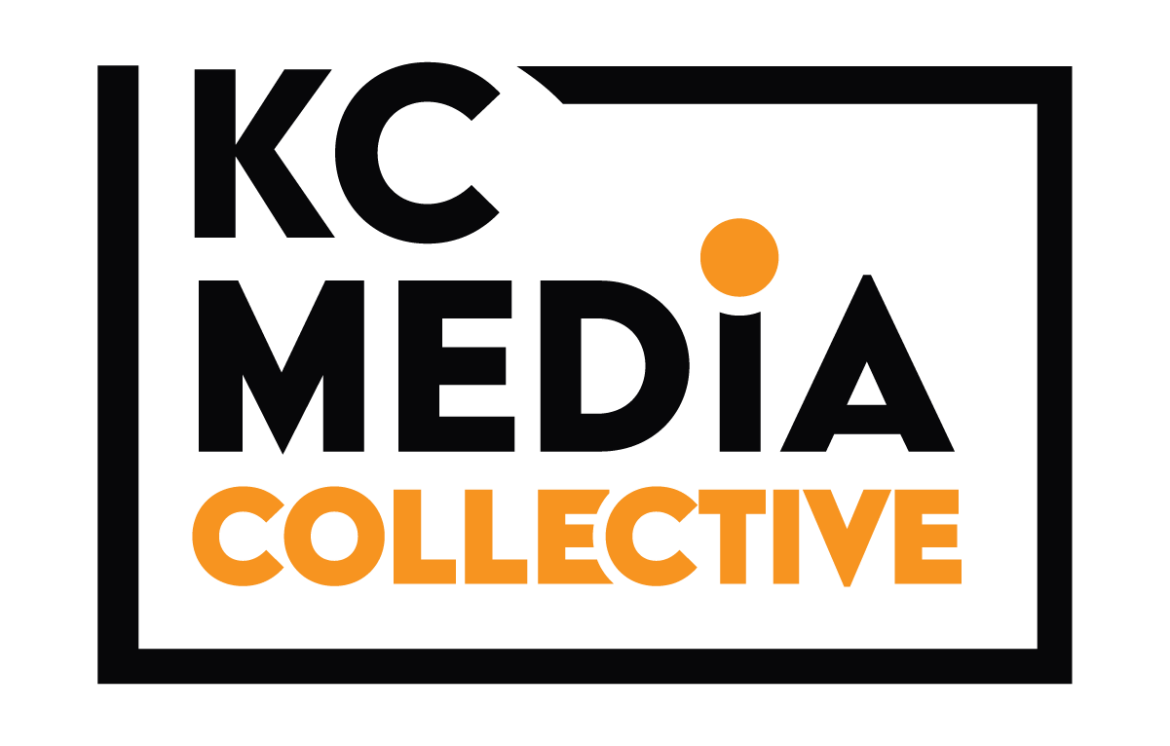curiousKC | Here’s How to Stay Healthy These Days, Say KC Health Leaders We dissect federal COVID funding news, booster guidance, flu shot recommendations and inequities in access.
Published September 26th, 2022 at 1:00 PM
Above image credit: Here's what local health care experts and public health researchers want you to know about COVID-19 right now. (Adobe Spark)As COVID-19 cases around Kansas City surge and fall, guidance by health leaders has shifted. The good news is case numbers have subsided in recent weeks.
As of Sept. 10, the Mid-America Regional Council’s COVID hub reported the daily average of new COVID cases was 244, close to the case rate in June 2020. Hospitalizations are down slightly compared to a month ago.
Kansas City health experts are cautiously optimistic while underscoring the need to remain vigilant for those more susceptible to severe disease.
“COVID is still around and it is still with us,” said Ithar Hassaballa, a Kansas City-based health equity and public health researcher whose expertise is in behavioral psychology infectious disease, and chronic conditions.

Hassaballa sees the need for more cultural competency and understanding of the barriers depending on a person or family’s socioeconomic status. Economics impacts health, she explained.
“Some of us get sicker or can’t bounce back as quick and are financially unable to really lift ourselves up,” she said. “We need to be talking (it) as well as ensuring … there are services for people who need them, whether they speak a different language, or have other needs that we might not think of.”
Decisions to relax COVID guidelines, some folks in the epidemiology and public health world say, were made to boost the economy rather than community health.
Three years in, vulnerable communities such as those who are older and immunocompromised continue to bear the brunt of poor health outcomes after getting infected with COVID.
What do physicians, who’ve been at the helm of pandemic response, say?
Keep an eye on inequities that arise, said Dr. Michael Moncure, with University Health and clinical adviser for the Mid-American Regional Council’s Health Care Coalition.
“Right now we’re doing okay,” Moncure said.
Health systems in Kansas City are still adjusting to COVID’s impact during unprecedented peaks, as well as hospitals left understaffed when folks left the health care industry altogether because of burnout or illness. The other issue is the lack of funding support for COVID measures such as Personal Protective Equipment (PPE) stockpiles and testing.
It’s clear money will soon run out.
After months of pushback from federal health leaders, Congress failed to fund much-needed, and now scarce, pandemic resources despite various pleas from the federal COVID response team.
On Sept. 6, the White House COVID response coordinator Dr. Ashish Jha announced a website offering free COVID tests was discontinued as of Sept. 2 because of a lack of government funding. He pointed to the inaction of Congress.
Jha said in a press briefing he had long warned there wasn’t enough money for vaccines. This put the COVID response team in an “impossible situation.” Without funding, the team pulled resources out of personal protective equipment stockpiles and shut down the free test portal COVIDTests.gov. As it stands, their hands are tied until Congress can give the COVID response team financial support.
“We do not have the ability to continue,” he said. “… We needed Congress to step up. Congress has not stepped up.”
Advocates warn this may leave programs with limited supplies, which in turn means pharmacies, clinics and health centers may be unable to provide folks with free tests and vaccines against the coronavirus. The long-term effects are unclear.
Shorter-term, test shortages are already happening in Kansas City.
Johnson County’s Department of Health announced on Sept. 20 that their Olathe office will “discontinue distributing free at-home COVID tests.”
Due to decreased availability and demand, we will discontinue distributing free at-home COVID-19 tests from our Olathe office after Sept. 30. Tests continue to be available at pharmacies, grocery stores and libraries (while supplies last). More info: https://t.co/h7ImiRl37O pic.twitter.com/XjsesEIbZs
— JCDHE (@JOCOHealth) September 20, 2022
In pharmacies and grocery stores, folks are finding themselves paying anywhere between $19.99 to $100 for a COVID test kit. Insurance red tape and mix-ups have also caused sticker shock.
These issues further contribute to the dichotomy that health care as an industry has perpetuated. The pandemic, Moncure said, focused a bright light on those inequities and now it’s happening again.
“That could be bad,” Moncure said.
For now, health leaders are focused on multi-pronged approaches to minimizing risk, particularly now that cooler months and holidays are ahead. Folks will begin to congregate indoors and defer to a mish-mash of guidelines issued by the Centers for Disease Control and Prevention (CDC).
“I think we need to pay attention and still have a fair degree of caution as we head into winter,” author and health expert Amber Schmidtke wrote in the latest COVID Digest update. “The winter season of COVID-19 has historically always been worse than the summer season.”
Data supports her point. She emphasized the need to slow or stop ongoing harm to people who contract COVID-19 and then develop long COVID.
What follows is a short guide on what communities in the Kansas City metropolitan area need to know and the topics that are top of mind for public health leaders.
Health Experts Advise, ‘Get vaccinated’
Vaccines against COVID-19 are one step to reduce chances of getting severe disease or long-COVID complications.
“Get vaccinated,” Moncure said.
Dr. Dana Hawkinson, infectious disease physician at the University of Kansas Health System, says it’s especially important because flu season is right around the corner.
“You should have maximal protection now,” he says.
Text your ZIP code to GETVAX (438829) in English, or VACUNA (822862) in Spanish, to get local vaccine information. Or you can call 1-800-232-0233 to find locations near you in the U.S.
Find your county below:
Kansas
Missouri
- Missouri Vaccine Navigator
- Cass County
- Clay County
- Independence
- Jackson County
- Kansas City
- Platte County
- Ray County
Or to find a vaccination site, go to the Mid-America Regional Council’s Prepare Metro KC information hub. It has a comprehensive resource list, including numbers to request free transportation assistance
What do I need to know about the new bivalent booster?
Bivalent COVID-19 boosters are available as of early September, and folks are lining up to get them.
Kelsey Neth, the spokesperson with the Clay County Health Department, said new shipments of the bivalent boosters came in the first week of September. They’re already planning to order more if needed.
“It’s very much simplified the booster process,” Neth said. Before, community members sought Pfizer-specific or Moderna-specific boosters to follow their previous doses.
This one eliminates the guessing game. Mixing is OK, according to the experts.
🎙️ Listen: KC Media Collective partner, KCUR’s podcast, Kansas City Today, on the factors to consider before getting the bivalent booster.
Flatland + KC Media Collective

Flatland is proud to take part in a new collaborative initiative involving a group of local, nonprofit media organizations designed to support and enhance local journalism. Learn More
What is a bivalent booster vaccine?
The American Medical Association defines bivalent as “half original strain, half Omicron BA.4, BA.5.” To help expand protections against newer variants of the coronavirus, the FDA authorized two updated mRNA versions.
Yale Medicine puts it like this: “Half of the vaccine targets the original strain, and the other half targets the BA.4 and BA.5 Omicron subvariant lineages, which are predicted to continue circulating this fall and winter.”
They’re manufactured by Pfizer-BioNTech and Moderna.
Should I get it? And what about the flu shot?
Yes, but there are some guidelines to be aware of.
- If you had COVID-19 in the past three months, wait to schedule your booster. The target window is three months from the time you tested positive or at the onset of symptoms.
- Wait to get your booster two months after you’re considered fully vaccinated and boosted.
- You can get the flu shot the same day you get the booster, physicians and pharmacists say. New this year, the CDC outlines specific flu vaccines folks 65 and older should get, linked here.
Now that COVID-19 restrictions are relaxed in most parts of the country, physicians are bracing for a bad flu season, advising folks — particularly those 65 years and older — to get the new flu vaccine as soon as possible.
Who benefits most from getting the bivalent booster?
“Those who are most likely to get more severe disease: the elderly, immunocompromised, and those with comorbid conditions like diabetes, kidney disease, and underlying lung disease,” said Anna Durbin, a professor in International Health, in a Johns Hopkins Q&A.
However, curbing infection rates is key to reducing variants’ abilities to mutate. So, public health leaders say everyone should be vaccinated.
The Kansas City Public Health Department is scheduling appointments here, as are pharmacies such as CVS and Walgreens.
What changes do I need to know about free at-home COVID tests?
Demands for at-home tests and in-clinic tests have decreased in recent months, say health leaders.
Demand has dwindled “even though we know the virus has been circulating at fairly high amounts in the past few months as well,” said Dr. Hawkinson, infectious disease physician at the University of Kansas Health System.
Hawkinson is concerned that the costs of tests and possible vaccinations at local grocery stores and pharmacies will cause folks to opt out of testing, further exacerbating transmission of the virus.
“Certainly when you do bring in out-of-pocket costs that will always affect the bottom line,” Hawkinson said.
Since federal funding for COVID resources has become scarce, health leaders are worried what that will mean for the free tests and vaccines.
“A lot of Americans are having challenges putting food on the table, paying their medical bills, so a COVID test … (is) going to be the least of their worries,” public health inequity researcher Hassaballa said.
State test guidelines:
Missouri residents:
The free delivery-to-home testing program ended, but the state still offers free testing at locations around the metro. To find a testing event in your county, click here.
Kansas residents:
Free tests are available by the Kansas Department of Health and Environment via Project Act. Like the federal program, the orders are free and delivered to your home.
To order the five-test packet, click on AccessCovidTests.org.
Do I need to pay for a test?
Short answer, yes. You may need to pay for COVID-19 tests out of pocket depending on where you go.
Some local grocery stores such as The Merc have been offering free tests at checkout but we’ll keep an eye out to make a proper list of where to go. If you have a tip, email us to let us know!
For folks who are insured, save receipts to file a claim with your insurance company.
Since the federal program is no longer providing mail-order tests, other programs have cropped up. Some county health departments still offer drive-through testing.
Prepare MetroKC, run by Kansas City’s Metropolitan Emergency Managers Committee, has a hub with information on testing and vaccines here for all counties in the Kansas City metropolitan area.
How else can I keep myself healthy and safe?
Hassaballa advises a “whole person approach,” meaning reducing stressors and bolstering the immune system through proper nourishment and exercise.
She also suggests precautionary measures such as mask wearing. Even though she doesn’t want to wear it all the time, she sees the protective benefits through the behavioral psychology lens. It’s for the community.
Discomfort is normal, but she wants to help normalize wearing a mask in more crowded places such as concerts and grocery stores.
“When you practice a behavior enough, right, like brushing your teeth in the morning, it just becomes natural and it becomes part of what you do,” Hassaballa said.
After all, we all want to be healthy for upcoming holiday reunions.


